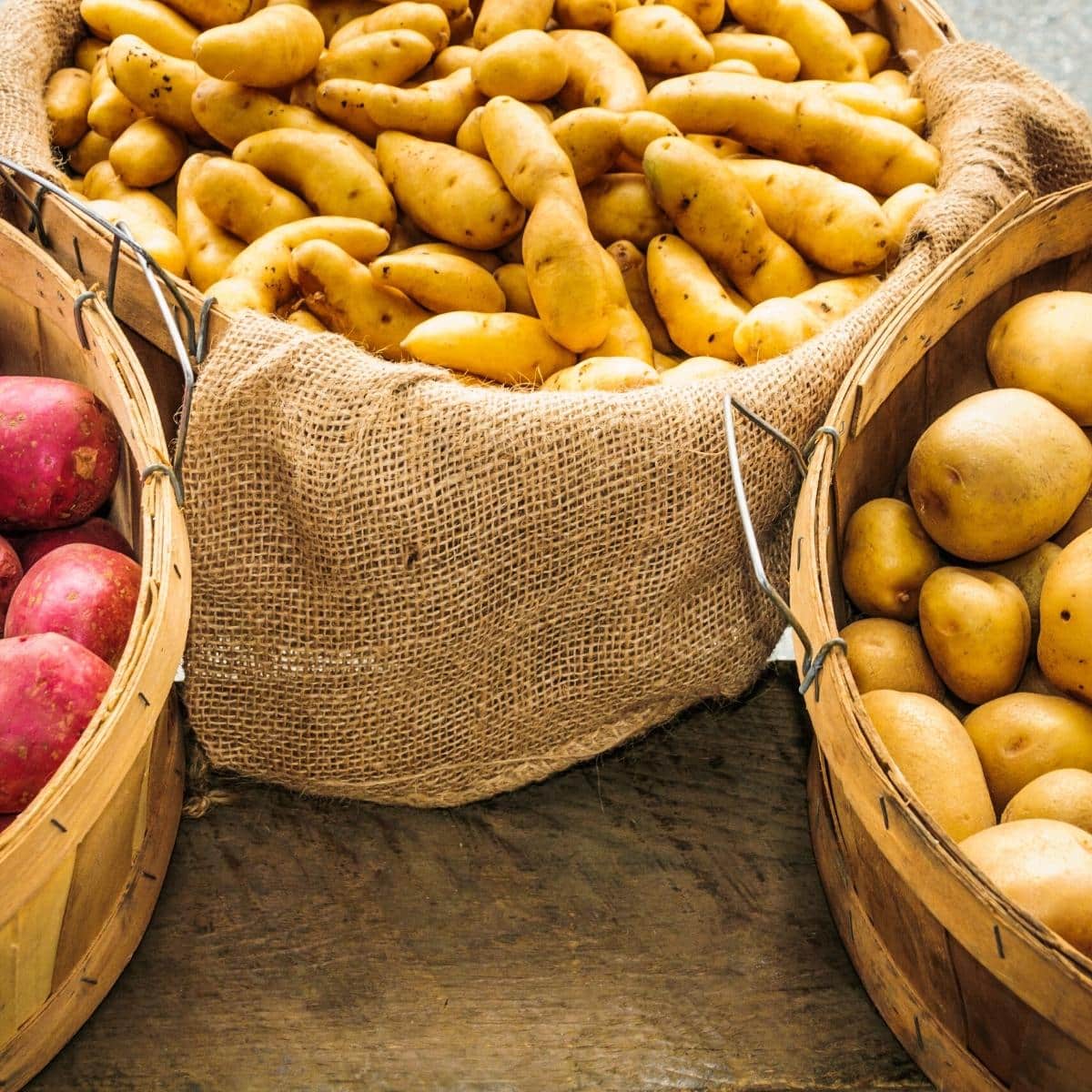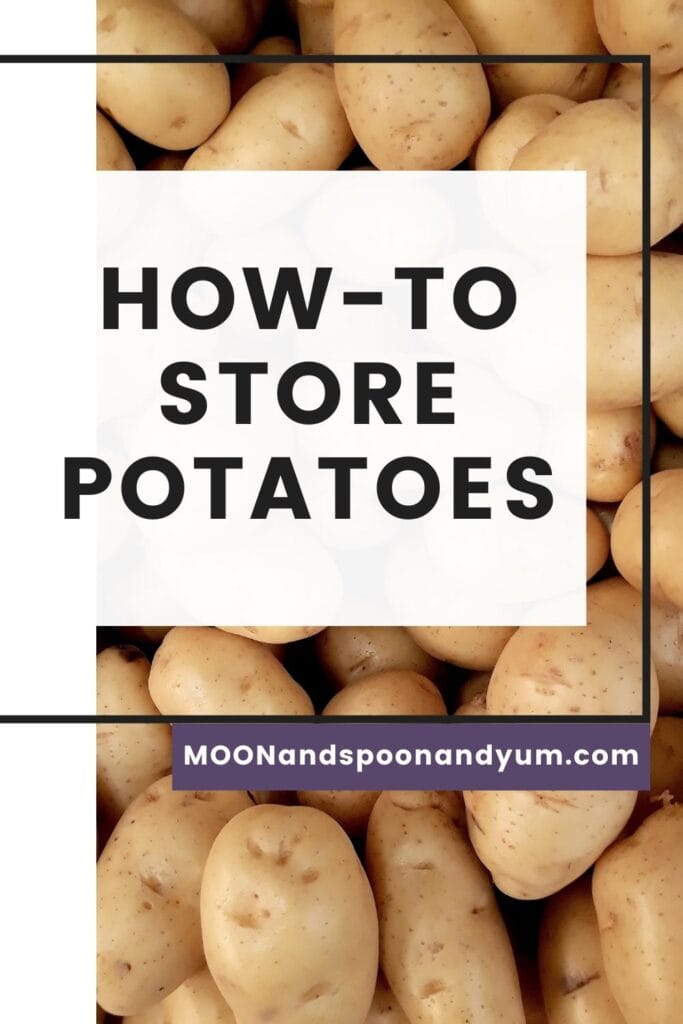Potato Storage: How to Store Potatoes Properly
Let’s dive into potato storage and how to store potatoes long-term so you can enjoy delicious spuds for some time to come.
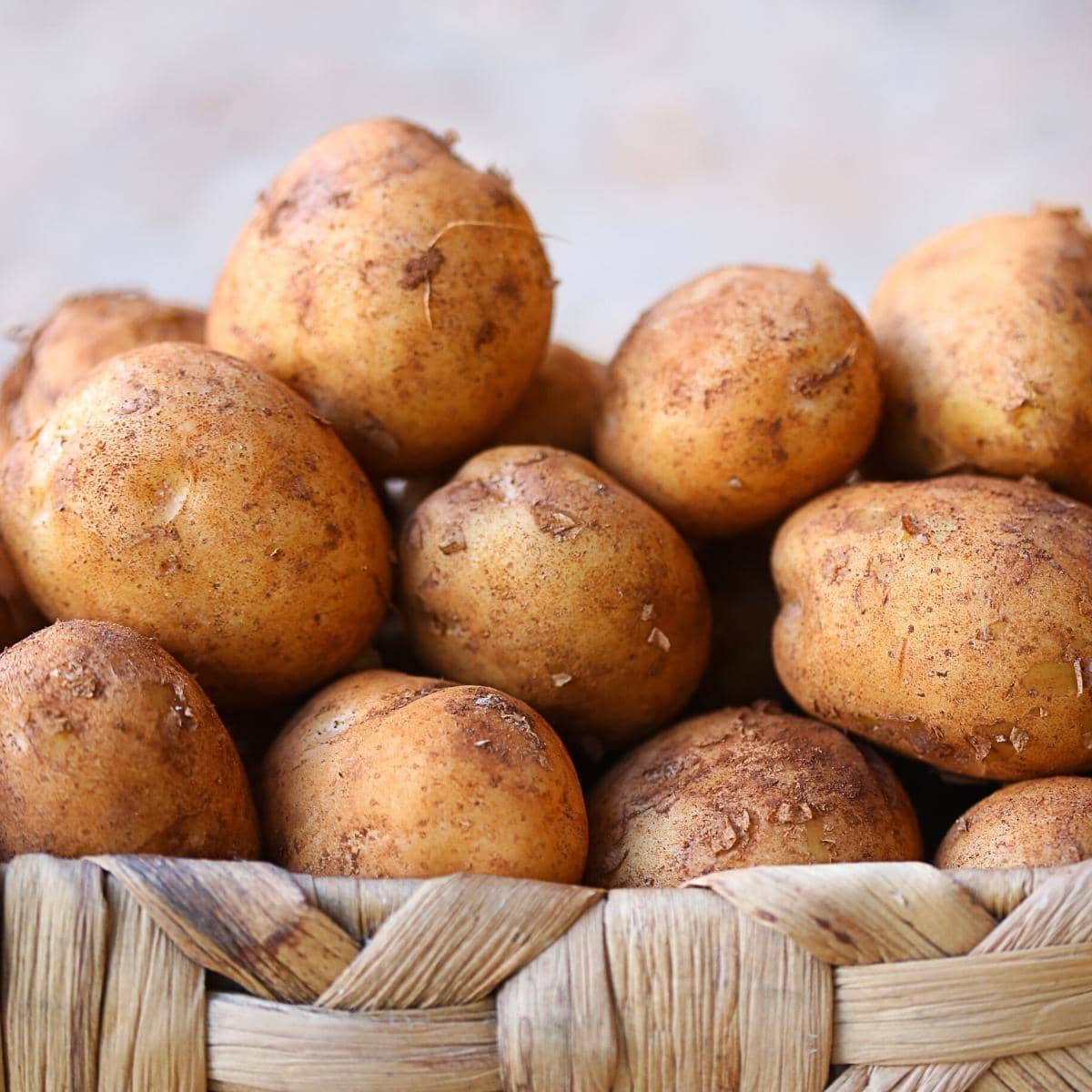
Do you find yourself with a surplus of potatoes? Don’t worry, this versatile pantry staple can last for a long time with the right storage conditions. In this article, we’ll guide you on how to store potatoes for a maximum shelf life.
How do you store potatoes long term?
Spuds are best stored in a cool, dark place. To be precise, a place with a cool temperature roughly about 50°F with around 95 percent humidity is the ideal environment. These are the average conditions of a root cellar, perfect for the long term storage of spuds. Storing spuds at a cold temperature also helps keep their vitamin C content intact.
Having said that, having your own root cellar at home isn’t always ideal. Placing them inside the refrigerator is a big no as well. Here are some makeshift storage tips on how to store your potatoes at home:
Check Your Potatoes
First things first, inspect your potatoes to check if there are any signs of mold or soft spots. Before storing them, make sure the potatoes are ideal for long term storage. Spuds should be spotless and free from sprouts or any pest damage.
Never Leave Your Spuds on the Kitchen Counter
Leaving potatoes to rest on the countertop might cause too much sun exposure, leading to excessive chlorophyll production which colors your potatoes green. The presence of a green color on potatoes speeds up spoilage. Apart from the green color, this may also lead to the potatoes growing sprouts which will make the potatoes inedible.
Moreover, sunlight exposure may cause the production of solanine, a toxic chemical dangerous for human consumption. High levels of solanine may cause intestinal issues, thus discarding potatoes exposed to sun is advisable.
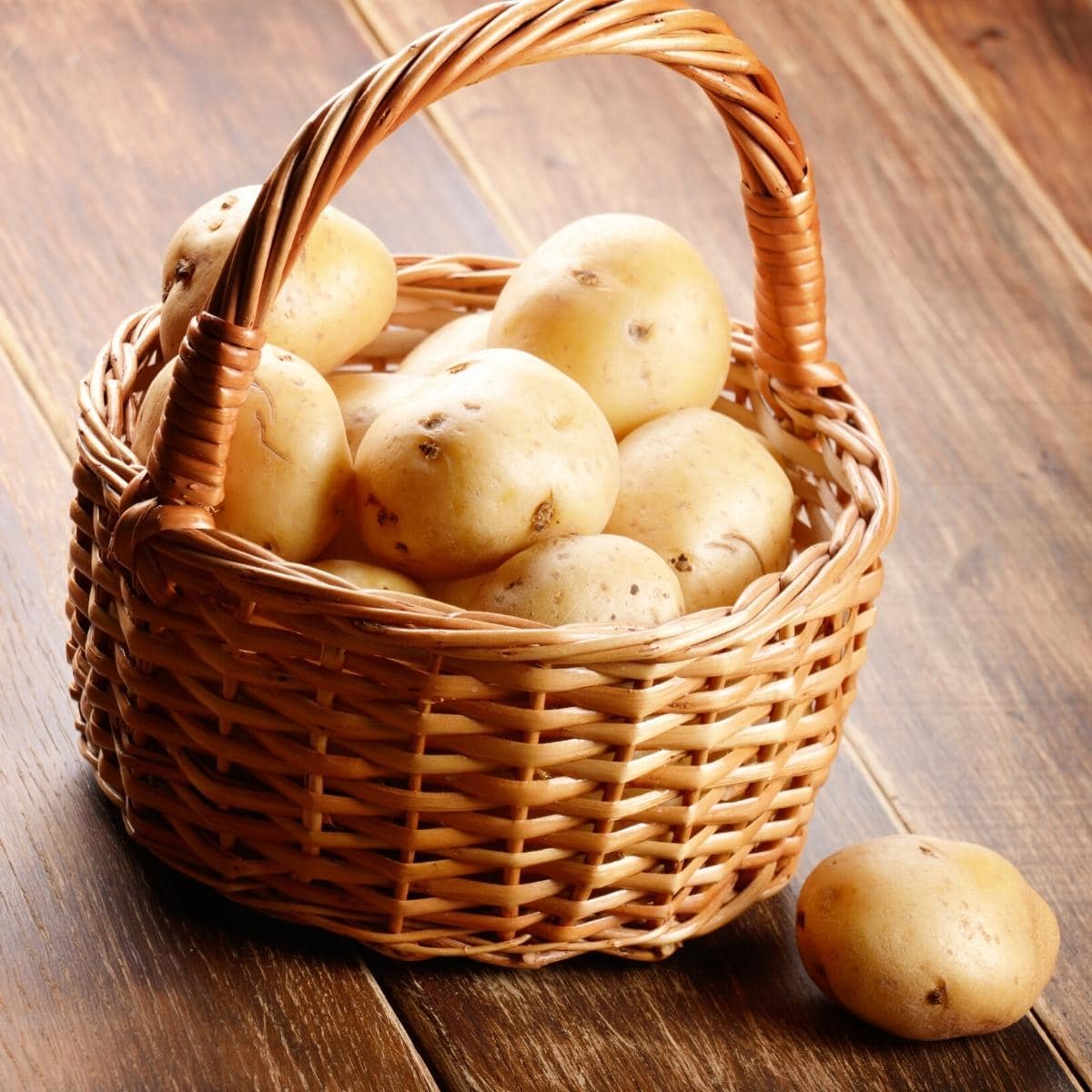
Store Potatoes in a Large Bowl or Basket
Never store your potatoes in storage bags or airtight containers. Rather, choose a large bowl, basket, or mesh bag to store your potatoes in. You can also create a makeshift cardboard box with poked holes. After all, the secret to proper storage is good ventilation!
Just like with any food, potatoes must be kept away from moisture to avoid spoilage. This can be easily solved by securing plenty of air circulation, allowing the potatoes to breathe. PRO Tip: avoid using plastic bags of any sort as they can trap moisture, too! The exception to this are paper bags, which can be used in a pinch with the tops left open.
Don’t Wash Potatoes Before Storage
While washing off the dirt from your spuds may be tempting, remember not to expose potatoes to water if the goal is to store them for a longer period of time. Doing so avoids unnecessary moisture which can lead to spoilage. Remember, keeping your spuds dry creates a longer storage life.
Store Away from Other Fresh Produce
Tossing potatoes next to fresh produce such as apples, onions, bananas, and tomatoes may lead to sprouts. Because of the ethylene gas produced by these fresh produce, putting the potatoes nearby induces premature ripening that causes soft spots, tubers, and eventually causes them to spoil and rot.
For Freezer Storage: Chop and Blanch Potatoes
In case you have time for extra food preparation, it is best if you can freeze chopped and blanched potatoes. As freezing raw potatoes imposes a health risk, make sure to pre-cook potatoes before storing them in the freezer.
- To do this, you need to peel your potatoes first and then cut them into equally-sized pieces.
- Prepare a pot of boiling water and blanch the potatoes for about three to five minutes. Once done, make sure to place them into a bowl of ice water to stop the cooking process.
- Drain the potatoes and toss them into an airtight freezer bag.
PRO Tip: use a vacuum sealer for extra caution. After all, exposure to air for blanched potatoes leads to spoilage.
- When you’re ready to cook, defrost the potatoes like regular frozen goods. Fry, cook or bake them as usual, and voila! You’re ready to snack on your favorite homemade chips.
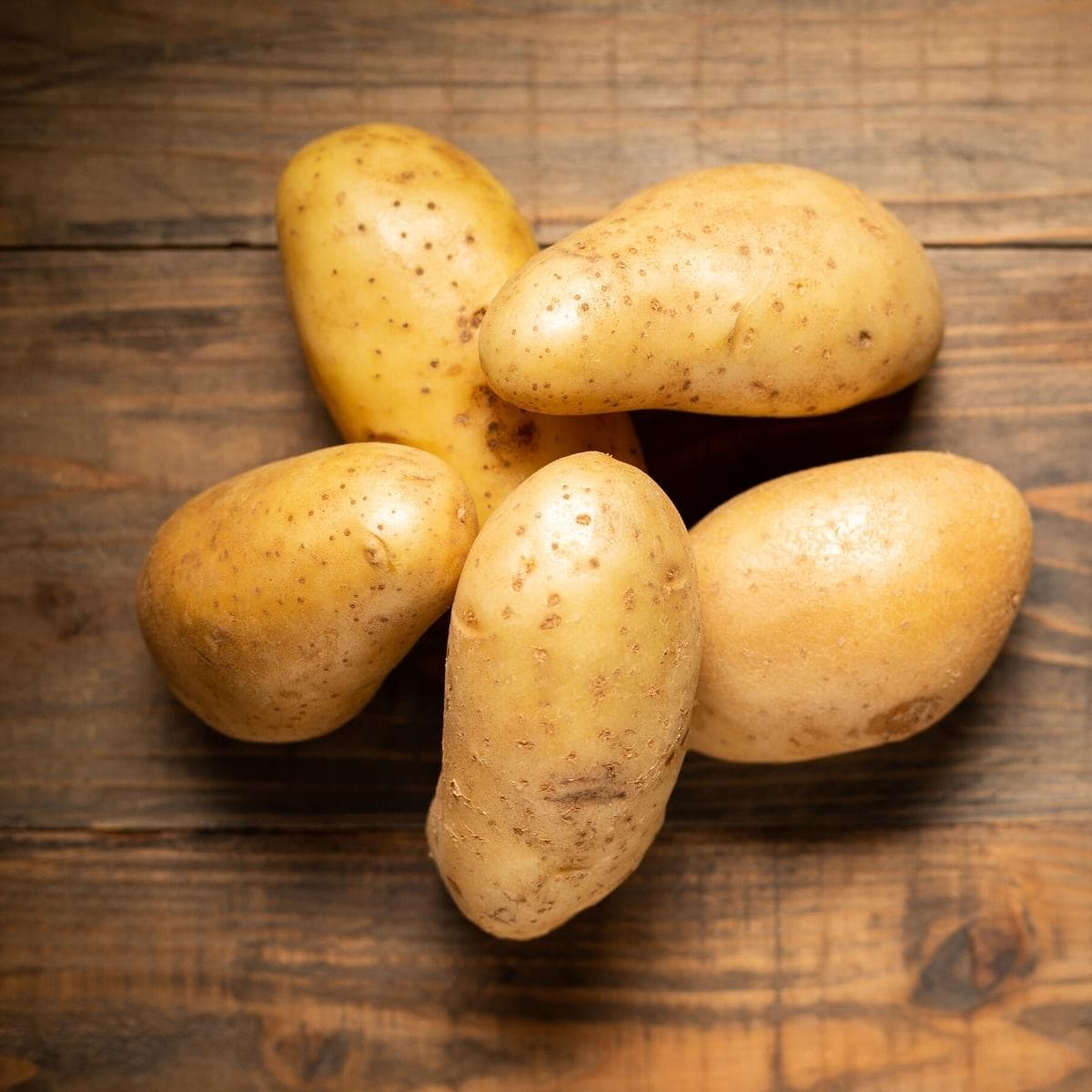
Where should potatoes be stored in the kitchen?
As potatoes are best stored in cool, dark places, spuds are best stored inside a kitchen cupboard or even in your unheated basement. Remember to follow the tips for storing them inside a mesh bag or cardboard box for proper air circulation.
Why shouldn’t you keep potatoes in the fridge?
Storing raw potatoes inside the fridge poses a potential health risk. At low temperatures, potatoes double the amount of their sugar content, prompting the formation of acrylamide.
Acrylamide is a toxin found in starchy food which may cause cancer. This is usually developed when potatoes straight from the fridge are cooked at a high temperature. High levels of acrylamide are proven to cause cancer in animals, but the FDA also warns of its possible health implications in humans.
Which potatoes store best?
Not all potatoes are created equal. To enjoy the longest shelf life, make sure to select these potato varieties available at your local grocery stores:
- Fingerling potatoes
The shelf life of this variety is expected to be around 4-6 months given the proper storage conditions. Physically, you will recognize these potatoes as they literally look like fingers. You may find their labels as:
- Rose Finn Apple or Ruby Crescent
- Russian Banana
- Katahdin
This winter-perfect potato is drought-resistant, making it an ideal choice for extremely cool temperatures. Katahdin is known for its large, round tubers with white flesh and thin skin.
- All Blue
Easily recognizable, this mid-season variety is known for its deep blue skin and flesh.
- Russet
This variety is your classic, long, extremely dry, thick-skinned potatoes. This is a popular choice as this is commonly found across most stores.
- Yukon Gold
Easily available in fresh markets, Yukon gold is easily distinguishable with its smooth, golden, and spotless potato skin.
